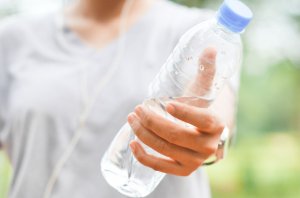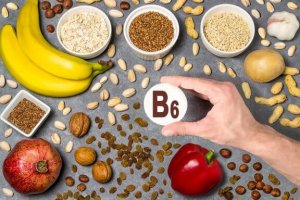Lactate: its causes and how to eliminate it

The body produces lactate when there’s a lack of oxygen during physical activity, while lactic acid is produced when glucose is oxidized after it’s consumed. The difference between the two is that lactic acid releases hydrogen ions and that converts pyruvate to lactate.
While doing physical activity, the body can produce more lactate than it uses. The excess acid accumulates in the bloodstream and causes different discomforts.
Nausea, cramps, muscle aches are some of the discomforts that present themselves as warning signals telling the body to rest. It’s important to clarify that these repercussions are only momentary; any discomfort days later has no relation.
How do you get rid of lactate?
There are several ways to transform or eliminate lactate from the body. Some are even natural.
1. Metabolism
The heart needs lactate to acquire energy; it consumes it during and immediately after training. It’s possible to return to a natural physical state after about 30 to 60 minutes.
Likewise, the liver also has a relevant role in eliminating lactate. It converts it into glucose or the amino acids necessary to make proteins.
2. Staying hydrated
Drinking water, during and after a physical exercise routine is essential. A hydrated body is more resistant to the absence of oxygen; therefore, it’s more likely to avoid muscle pain.

3. Increase the workout intensity gradually
For a healthy physical routine, you have to go gradually. The rhythm, power, and duration of the exercises should increase slowly. Thus, you allow the body to acquire the physical state required to have more tolerance. It’s essential to raise your threshold and not suffer from the symptoms of too much lactate.
4. Conscious and adequate breathing
Taking deep and conscious breaths keep the body’s oxygen level balanced. As long as this balance exists, lactic acid can’t enter the bloodstream.
5. Pay special attention to post-exercise stretching
Carefully stretching the muscles after training accelerates the elimination of lactate. Gentle massages also prevent the pain, cramping or burning caused by lactic acid. It also facilitates blood flow and releases muscle tension.
6. Supplements
There are supplements such as Beta-alanine, which tend to disperse the presence of lactate. The objective is to combat acidosis without impairing the absorption of oxygen. As always, it’s recommended to consult a doctor before consuming this type of supplement.

The relationship between nutrition and lactate
Some foods facilitate the elimination of lactic acid from the body. Adopting a healthy and balanced diet is important.
Fatty acids
Seeds, corn, salmon and other such foods are highly recommended. Hence, consuming them allows your body to decompose glucose better without the need of lactic acid. This way, fatigue, and other symptoms are delayed.
Magnesium, an essential mineral
Eating legumes, turnips, spinach and other foods rich in magnesium is a great way to prevent lactate from accumulating. They’re a great source of energy and critical for training. This way, the muscles get what they need without lactic acid.
There are also natural supplements that you can incorporate into your daily routine. It’s necessary to know how much your body requires so that you don’t suffer the consequences.
Vitamin B
The presence of vitamin B in the body ensures that the muscles adequately distribute energy. A diet rich in meat, fish, eggs, cereals and green, leafy vegetables delays the appearance of lactic acid.

Lactate’s positive side
The presence of lactate can become an important source of energy for high physical performance. The amount varies according to the type of sport you perform and especially the time you train.
Lactate is a fundamental source of fuel for the body’s muscles. When you’re active, your muscles use it for the energy they need without requiring oxygen. By reducing the oxygen requirement your muscles will recover quickly from shortcomings.
Also, lactic acid is very beneficial for potassium to reach the cells. It eliminates chloride which prevents potassium from entering into the cell.
REMINDER: lactate isn’t the cause of muscle pain in the days after practicing sports.
The body produces lactate when there’s a lack of oxygen during physical activity, while lactic acid is produced when glucose is oxidized after it’s consumed. The difference between the two is that lactic acid releases hydrogen ions and that converts pyruvate to lactate.
While doing physical activity, the body can produce more lactate than it uses. The excess acid accumulates in the bloodstream and causes different discomforts.
Nausea, cramps, muscle aches are some of the discomforts that present themselves as warning signals telling the body to rest. It’s important to clarify that these repercussions are only momentary; any discomfort days later has no relation.
How do you get rid of lactate?
There are several ways to transform or eliminate lactate from the body. Some are even natural.
1. Metabolism
The heart needs lactate to acquire energy; it consumes it during and immediately after training. It’s possible to return to a natural physical state after about 30 to 60 minutes.
Likewise, the liver also has a relevant role in eliminating lactate. It converts it into glucose or the amino acids necessary to make proteins.
2. Staying hydrated
Drinking water, during and after a physical exercise routine is essential. A hydrated body is more resistant to the absence of oxygen; therefore, it’s more likely to avoid muscle pain.

3. Increase the workout intensity gradually
For a healthy physical routine, you have to go gradually. The rhythm, power, and duration of the exercises should increase slowly. Thus, you allow the body to acquire the physical state required to have more tolerance. It’s essential to raise your threshold and not suffer from the symptoms of too much lactate.
4. Conscious and adequate breathing
Taking deep and conscious breaths keep the body’s oxygen level balanced. As long as this balance exists, lactic acid can’t enter the bloodstream.
5. Pay special attention to post-exercise stretching
Carefully stretching the muscles after training accelerates the elimination of lactate. Gentle massages also prevent the pain, cramping or burning caused by lactic acid. It also facilitates blood flow and releases muscle tension.
6. Supplements
There are supplements such as Beta-alanine, which tend to disperse the presence of lactate. The objective is to combat acidosis without impairing the absorption of oxygen. As always, it’s recommended to consult a doctor before consuming this type of supplement.

The relationship between nutrition and lactate
Some foods facilitate the elimination of lactic acid from the body. Adopting a healthy and balanced diet is important.
Fatty acids
Seeds, corn, salmon and other such foods are highly recommended. Hence, consuming them allows your body to decompose glucose better without the need of lactic acid. This way, fatigue, and other symptoms are delayed.
Magnesium, an essential mineral
Eating legumes, turnips, spinach and other foods rich in magnesium is a great way to prevent lactate from accumulating. They’re a great source of energy and critical for training. This way, the muscles get what they need without lactic acid.
There are also natural supplements that you can incorporate into your daily routine. It’s necessary to know how much your body requires so that you don’t suffer the consequences.
Vitamin B
The presence of vitamin B in the body ensures that the muscles adequately distribute energy. A diet rich in meat, fish, eggs, cereals and green, leafy vegetables delays the appearance of lactic acid.

Lactate’s positive side
The presence of lactate can become an important source of energy for high physical performance. The amount varies according to the type of sport you perform and especially the time you train.
Lactate is a fundamental source of fuel for the body’s muscles. When you’re active, your muscles use it for the energy they need without requiring oxygen. By reducing the oxygen requirement your muscles will recover quickly from shortcomings.
Also, lactic acid is very beneficial for potassium to reach the cells. It eliminates chloride which prevents potassium from entering into the cell.
REMINDER: lactate isn’t the cause of muscle pain in the days after practicing sports.
All cited sources were thoroughly reviewed by our team to ensure their quality, reliability, currency, and validity. The bibliography of this article was considered reliable and of academic or scientific accuracy.
euskadi.eus. Diagnóstico del lactato en el deporte. Extraído de: http://www.euskadi.eus/contenidos/informacion/escuela_vasca_deporte/es_9258/adjuntos/Lactato%20en%20el%20Deporte%202.pdf
Medigraphic.org. 2010. Distribución del ácido láctico. Extraído de: http://www.scielo.org.mx/pdf/rmib/v31n1/v31n1a4.pdf
Javier Alejandro Álvarez Romero. 2014. Universidad nacional de Colombia. Evaluación fisiológica lactato. Extraído de: http://www.bdigital.unal.edu.co/46518/1/05599264.2014.pdf
This text is provided for informational purposes only and does not replace consultation with a professional. If in doubt, consult your specialist.








